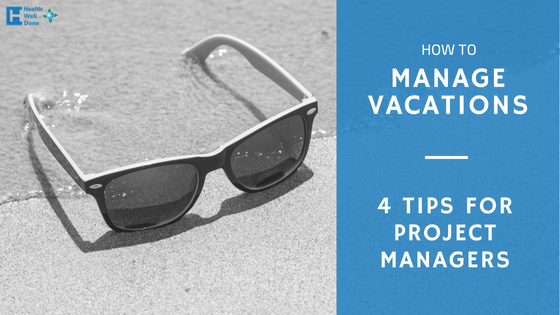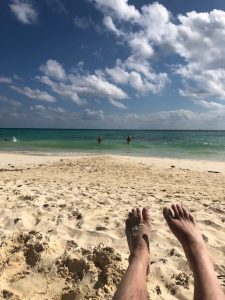Picture this. I was relaxing on a lounger, soaking up the Florida sunshine, when my phone rings. It’s my superintendent, Mike, a real salt-of-the-earth type.
“Cathy!” he booms down the phone.
“What’s up, Mike? What do you need?” I reply.
What followed was a stream of problems, one after the other. I listen for a bit, then I interrupt him.
“Mike? Mike, listen, can I call you back?” I ask. When he says okay, I say my goodbyes, hang up, and go back to enjoying the sunshine.
When I get back to the office, Mike comes over to see me.
“I guess I broke one of your vacation rules,” he admits. I ask him what made him think that.
“Because you didn’t call me back,” he growls.
It’s true, I didn’t. I was on vacation.
Vacations: Necessities, Not Luxuries
What is a vacation? Personally, I think of vacations as a time to rest, have some fun, and recharge your batteries so you can come back to work happy and healthy. But for most of us, relaxation, enjoyment, and a break from work usually never happens – especially for project managers.
For a project manager, taking a vacation sounds like a sure-fire way to completely derail your project – after all, who will make sure those reports get issued and that critical meeting about the new phase happens if you aren’t there to do it?
But this constantly working mentality is what will burn you out in the end, making you less productive and utterly miserable. Good project managers take care of themselves, so they can also take care of their teams. When you give yourself a chance to recuperate and enjoy life a little, you’ll reap the benefits when you come back to work refreshed and ready for any challenges.
And it’s not just project managers who need vacations either. Your team also need that time to unwind and get a break from the project. Giving them that space can result in more creativity, which in turn generates new and novel ideas. That innovation can then be shared collaboratively with the team when they return to work and applied to the project, often with great results.
Use Vacation Rules
Now, I know what you’re thinking – this is completely unachievable!
I get it.
Sometimes it’s not always possible to switch off from work completely while you’re away. This is why I use my vacation rules. They are simple but effective:
1. Communicate Early
At least 3 weeks in advance of your vacation schedule, put a note in your email signature stating the time you will be away. For example: “I will be away from 8/11/18 – 8/22/18. If you need anything from me, please request it by 8/3/18. Thank you.”
2. Be Proactive
Inquire and anticipate what is needed from you while you are away. This way you can prepare ahead of time and tie up any loose ends.
3. Set Boundaries
Before you leave, don’t say, “Call or email me if you need anything.” Instead, say, “Contact me if you need approvals to move ahead and keep things going.”
4. Protect Staff
Have your team members tell you their vacation schedule, so you can protect them from phone calls while they’re away and let them enjoy their time off.
With this system, you’ll be able to enjoy your break and have only a couple of things to do while you’re away, instead of twenty. Everyone gets a chance to relax and enjoy their holidays, and things can still move forward.
Keeping people happy and productive is the main driver behind the Healthy Team principle of the Health Well Done approach. You can find more ways to keep your team healthy in my upcoming book, Health Well Done: A Patient-Centered Management Approach to Building Healthcare Environments, which will be released in Fall 2018.








